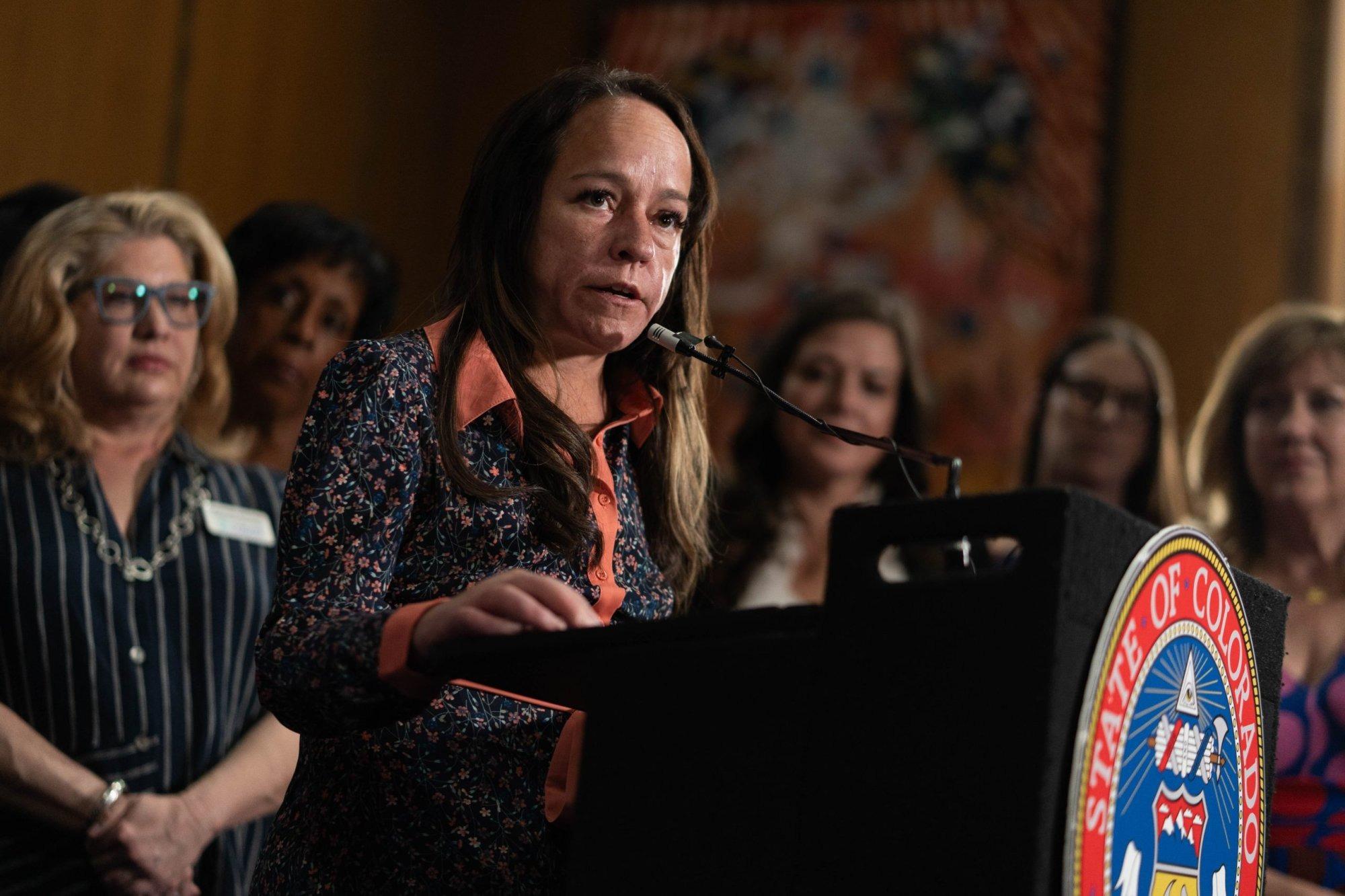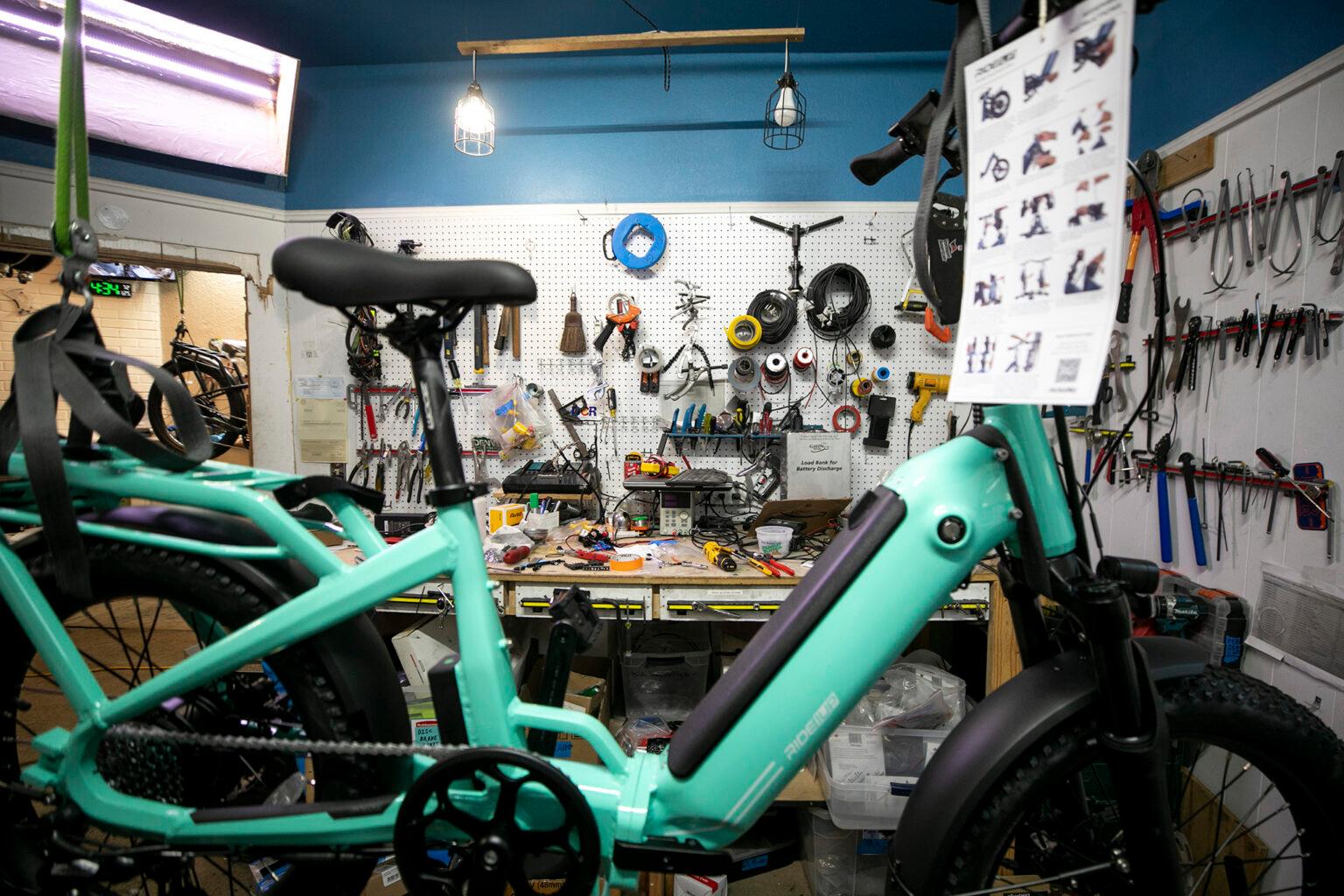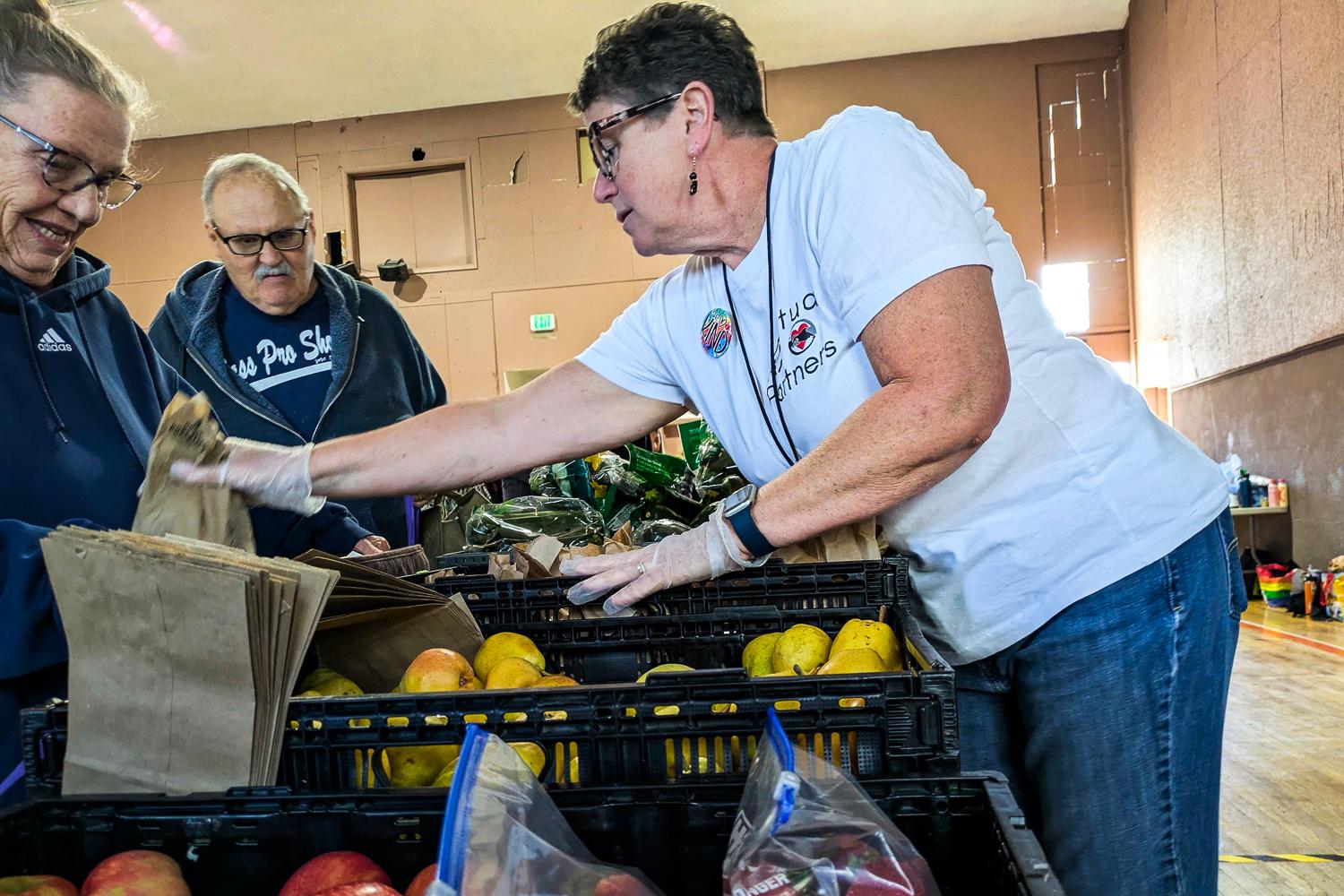
One thing seems certain: the federal dollars for food aid in November are likely not coming as the government shutdown enters a fourth week.
State and local officials are sounding the alarm and trying to get the word out that money for the Supplemental Nutrition Assistance Program, formerly known as food stamps, is all but certain to be on hold.
Dawn Washington of Denver said when the first of the month rolls around, she expects to go to a food bank instead of the grocery store. She said she relies on SNAP to help buy food.
“I’m going to hit up the local food banks to see what they’re offering and make do with whatever they give me,” she said.
She added that her son asked what they’d do about Thanksgiving. She answered whatever the food banks have. “We might have chicken strips for Thanksgiving dinner, but as long as we’re eating, that’s what we need to be thankful for.”
All across the state, many SNAP recipients are worried about how they’ll make do without the supplemental money for food from the federal government.
Travis Haynes lives in Grand Junction and said he got a warning about the money being on hold from an app on his phone.
Haynes works security part-time and said he gets around $290 a month in SNAP benefits.
“I've never been to a food bank. I know there's multiple locations here in town, but I've never had to go that route, yet,” Haynes said. Between his salary and going to a food bank if he needs to, he said he’ll be able to absorb any delay in SNAP funding.
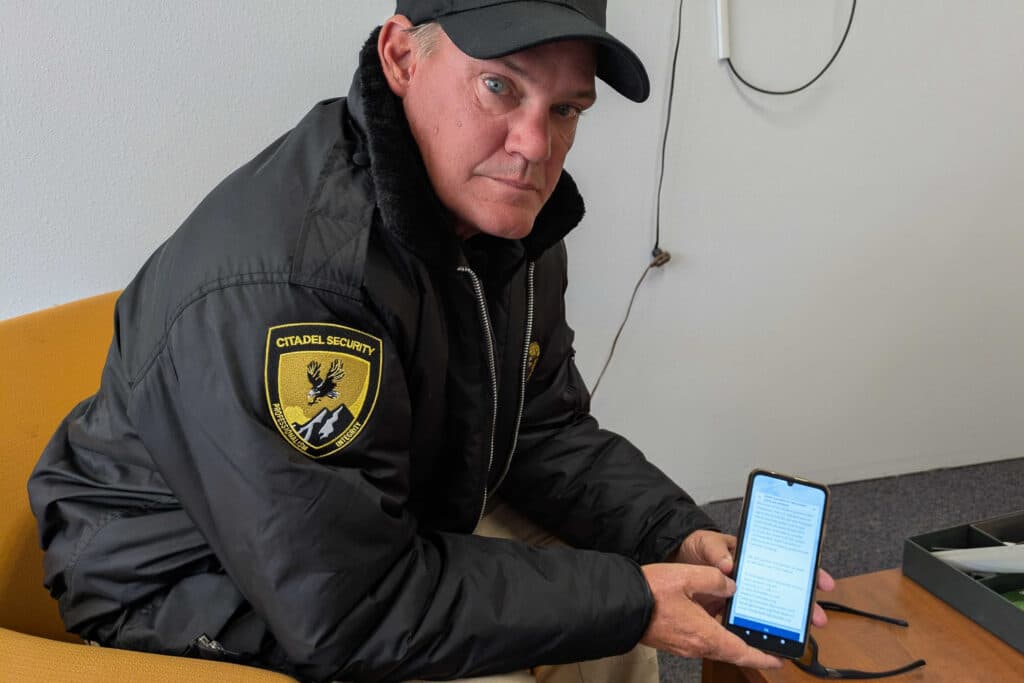
But Haynes knows that’s not true for everyone. He said he often chats with unhoused residents who frequent the area near his work.
“I hear about it every day,” Haynes said of SNAP benefits being delayed, “I'll hear about it again today at work, and I tell them I'm in the same boat. He said he tells people he’s also wondering about the future of his own benefits. ‘Well, you're employed.' Yeah, barely, but I'm still broke.’”
As the Nov. 1 date nears, food banks and county health services have been preparing for a delay in the federal program and increased crowds needing assistance. Stephania Vasconez runs Mutual Aid Partners in Grand Junction, which provides a range of services, including food distribution. On Tuesday, she told a gymnasium full of people there to pick up food that they should plan to do without their SNAP benefits next month.
“We understand that this is very unsettling for people here. So know that things are temporary, know that we are here for you,” Vasconez said.
Food banks in Mesa County have coordinated to make sure everyone in need knows every option they have heading into next month, Vasconez told CPR News.
“Knowledge and education really is what we can control. That's where our power is,” Vasconez said. “And so making sure that folks understand what is available and what resources there are, and that we are all talking to each other.”
As D.C. politicians point fingers, the state and counties search for solutions
On the other side of the Rocky Mountains, Weld County was also fielding a lot of calls and questions.
Jamie Ulrich directs the Weld County Department of Human Services. She said about 40,000 clients in her county won’t get their benefits at the start of the month. “They're just really unsure what this is going to look like. Again, people really rely on these benefits to keep their families fed, so it's a scary time for them. We're also getting a lot of questions about ‘where can I go?’ ‘What can I do?’”
Ulrich said she worries that the lines outside food banks and community pantries are just going to get even longer.
Her message to Congress was simple: that they “really consider the impact to the individuals and families that rely on these food benefits” and "who will experience food insecurity.”
“So please consider the individual families as you’re going through your negotiations,” Ulrich pleaded.
But that’s part of the problem; unlike past shutdowns, there are no high-level negotiations going on in Washington, D.C., instead both sides are dug in. Democrats want Republicans to address health care issues, including extending a tax credit that helps people buy insurance on the state marketplace. Republicans insist they will not negotiate until Democrats vote to pass a short-term government funding resolution.

It takes 60 votes to clear the filibuster for legislation to move forward in the Senate, and Democrats, including Sens. Michael Bennet and John Hickenlooper, have voted against moving anything forward. Republican leaders brought a short-term government funding bill to the floor, knowing it did not have Democratic support. And have kept bringing it up with the same failed result a dozen times now.
The lack of SNAP funding has become the latest talking point in this larger partisan government funding fight.
At a press conference on Wednesday, House Speaker Mike Johnson, a Republican, brought up a Colorado headline about food banks facing a crisis due to the prolonged shutdown. “What are Colorado’s two Democrat senators doing? You’ve got Hickenlooper and Bennet – they’ve both now voted 11 times to keep the government closed.”
GOP Reps. Gabe Evans and Jeff Crank have also called out the state’s two senators on social media for their ‘no’ votes.
Hickenlooper, however, defended his votes, pointing out that all states are suffering “because of all the pullbacks of federal grants.”
The former governor said he understands the pressure the shutdown puts on the state and counties, but put the onus on Republicans, who he said refuse to hold bipartisan talks to reopen the government. “I think it's insane that we can't get this done.”
Hickenlooper said he’s donating his pay to a food bank in the state.
Democratic Rep. Joe Neguse also placed the blame on Republicans and the White House for the hold on SNAP funding.
“It is unconscionable that the administration would leverage the SNAP Funds and the ability for families to access SNAP and WIC again as part of a larger campaign to effectively leverage the shutdown for political gain,” Neguse said during a telephone town hall on Tuesday, when a caller expressed concern about her daughter’s inability to get SNAP next month.
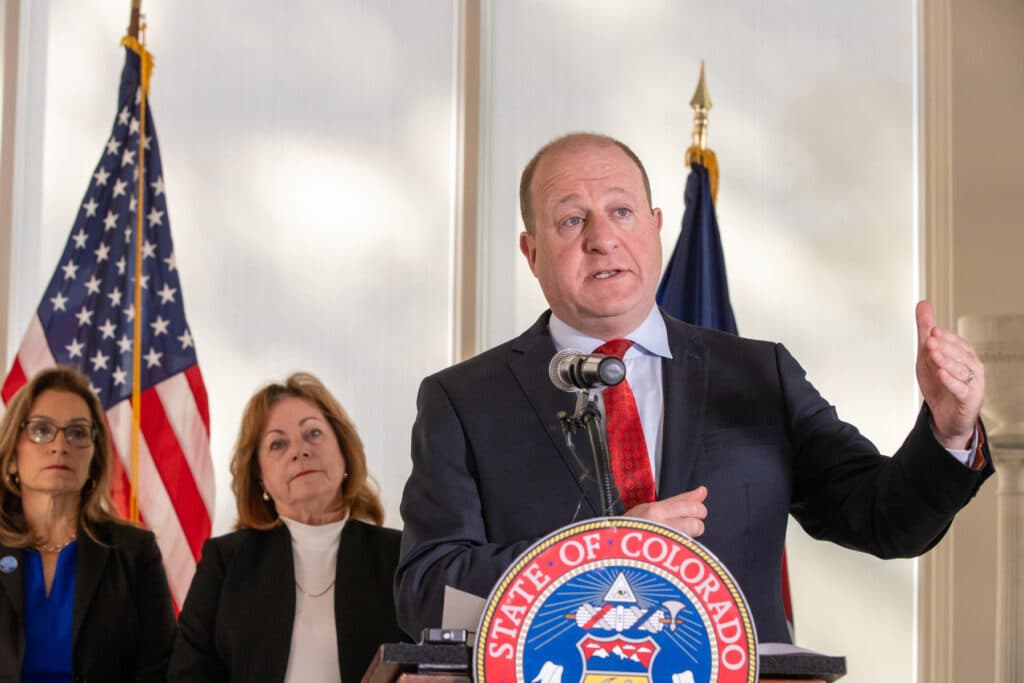
Gov. Jared Polis said 600,000 Coloradans, half of whom are children, won’t get SNAP benefits on November 1.
“We hope that the federal government fixes this and reopens and they will reopen someday,” he said at a press conference on Wednesday. “But we have to plan right now to get things moving because it seems unlikely at this point they're going to reopen before November 1.”
He asked the state Legislature’s Joint Budget Committee to approve up to $10 million to support food banks and pantries and to extend previously approved funding for the Women, Infants, and Children (WIC) food program.
But Polis warned that the state funding would not be nearly enough to offset the federal SNAP delay.
“This will not make up for the significant loss that this Republican-caused shutdown has created, and I’m calling on Republicans to stop threatening Colorado families’ food access and work to deliver health care, not rip it away,” Polis said in a statement.
Hunger, not politics, are front of mind on the food line
As the national politics of the shutdown play out two thousand miles away, some SNAP recipients in Colorado are less worried about who is to blame and more focused on when there might be a solution. Desiree Wines of Englewood has two children on the autism spectrum. She said it can be trickier to meet her children’s needs without food assistance.
“Everything I do involves my children, so I've looked into some resources and I know that food banks are also not going to accommodate my son's dietary needs very well,” Wines said.
Wines has had to piece together lapses in funding before, but she’s worried about the size of the need just in Colorado alone.
“I cannot understand how they would expect what is it, something like 600,000 people in the state of Colorado are suddenly supposed to go to food banks that were already not able to support the people that were going,” Wines said.
Wines has been encouraging others to contact their member of Congress, and she’s been following the politics of the shutdown. Haynes, the security guard from Grand Junction, said he has not been following the politics of it all, but he’s no fan of the Trump Administration and doesn’t want to see health care costs go up, nor does he want to see anyone going without their SNAP benefits for too long, including him. He said he’s reluctant to use community resources like food banks.
“But sometimes you just got to do what you got to do,” Haynes said.

